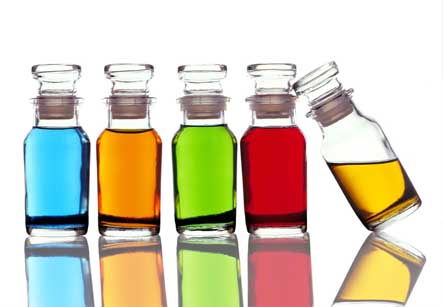Chemotherapy
Introduction
Chemotherapy or famously known as chemo is a type of cancer treatment that uses drugs to destroy cancerous cells.
Mode of action
Chemotherapy stops or retards the growth of cancerous cells, which grow and divide uncontrollably. It is also known to damage the healthy cells which cause side effects of the treatment. These side effects fade away after chemotherapy is over.
Indications:
Chemotherapy can be applicable for the following cases based on the type of cancer and stage of advancement:
• Curative – all the cancerous cells are killed by using chemotherapy and these cells do not grow back.
• Management of cancer- the growth of the cancerous cells is retarded by using chemotherapy avoiding cancer from spreading to other parts of patient’s body.
• Palliative treatment- chemotherapy helps to ease out the cancer symptoms and also shrinks the size of the tumours that cause pain or pressure.
Usage
Chemotherapy is sometimes used as the only cancer treatment. Many a times, patients are advised chemotherapy combined with surgery, radiation therapy, or biological therapy.
Iran Designs Nano Medicine-Career Easing Chemotherapy Side Effects.

Effects of chemotherapy
• Neo-adjuvant chemotherapy- Chemotherapy makes a tumour smaller before surgery or radiation therapy.
• Adjuvant chemotherapy- It kills the cancerous cells that may remain in the body after surgery or radiation therapy.
• Chemotherapy allows radiation therapy and biological therapy work well.
• It destroys recurring cancerous cells in case of recurrent cancer patients or it kills cancerous cells that may spread to other parts of the body in case of metastatic cancer patients
Choice of chemotherapy drugs
The chemotherapy drugs can be selected based on:
• The type of cancer
• If the patient has had chemotherapy before
• If patient has other health problems, viz. diabetes or heart disease
Treatment schedules
Schedules of chemotherapy treatment can vary widely.
The treatment schedule of chemotherapy is based upon
• Type of cancer
• Stage of cancer
• Objectives of the treatment (whether chemotherapy is used to cure the cancer, control its growth, or ease the symptoms)
• The type of chemotherapy
• How patient’s body reacts to chemotherapy
Chemotherapy cycles:
Chemotherapy stops or retards the growth of cancerous cells, which grow and divide uncontrollably.
Chemotherapy is given in predetermined number of cycles. A cycle is a period of chemotherapy treatment followed by a period of rest. A patient, for example, may receive chemotherapy for a week, followed by 3 weeks of rest. These 4 weeks make up one cycle. The period allotted for rest gives patient’s body a chance to build new healthy cells.
It is advised to patients not to skip a chemotherapy treatment. However, the chemotherapy sessions might be rescheduled based on patient’s status and the degree of side.
Chemotherapy methods of application
1. The chemotherapy can be given in the form of intramuscular injection in patient’s arm, thigh, or hip or right under the skin in the fatty part of the arm, leg, or belly.
2. The chemotherapy can be given in the form of intra-arterial injection that goes directly into the artery feeding the cancerous part of the body.
3. The chemotherapy can be given in the form of intraperitoneal injection that goes directly into the peritoneal cavity which contains organs like intestines, stomach, liver, and ovaries.
4. The chemotherapy can be given in the form of intravenous (IV) injection which goes directly into a vein. IV chemotherapy is often given through catheters or ports, sometimes with the help of a pump.
5. The chemotherapy drug can be applied onto patient’s skin if it is available in cream or ointment form.
6. The chemotherapy drugs available in the form of pills, capsules, or liquids can be given orally.
Effects of chemotherapy:
Chemotherapy may show different effects in different set of patients. It depends mainly on the patient’s status pre-treatment, type of cancer, stage of cancer, type of chemotherapy, dosage involved. It is difficult to predict the exact effects of chemotherapy. The most common side effect is fatigue, feeling exhausted and worn out. Patients are requested to prepare themselves for fatigue by:
• Asking someone to drive you to and from chemotherapy
• Planning time to rest on the day of and day after chemotherapy
• Getting help with meals and childcare the day of and at least 1 day after chemotherapy
• There are many ways you can help manage chemotherapy side effects.